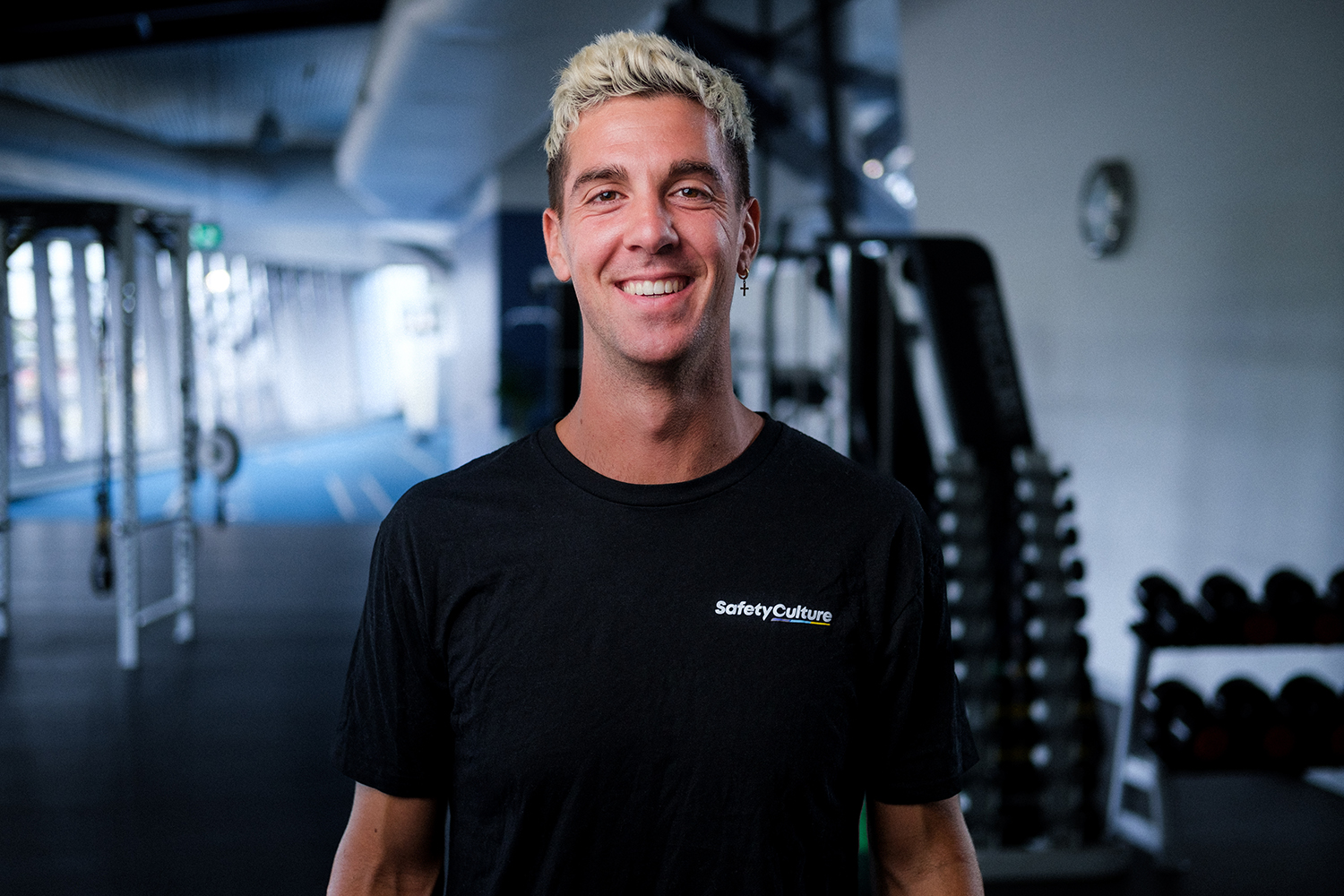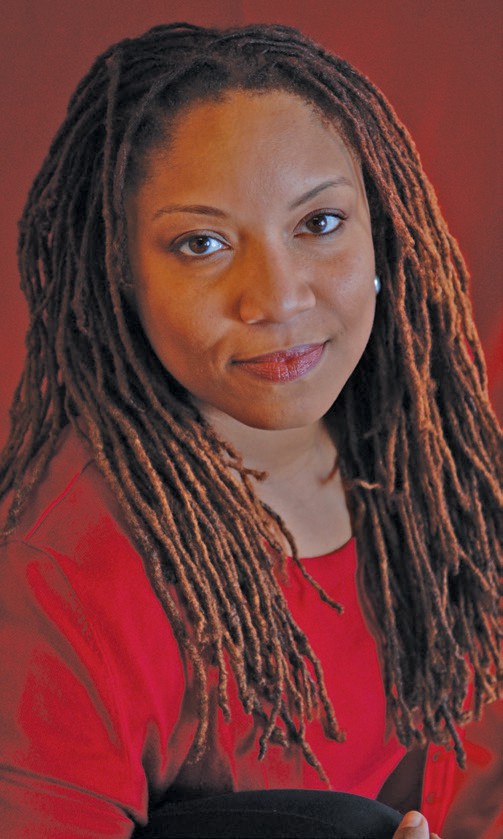In her first book, How To Fail, Elizabeth Day spoke openly about having three miscarriages – two following IVF and one after falling pregnant naturally – and reflected on her ‘failure’ to conceive and to carry a baby to term.
While neither of these tragic, difficult, heartbreaking situations make you “a failure”, she later explained to the Irish Times that she believed that the language used around fertility struggles naturally leads you to believe that.
She said: ‘No one has ever said to me you shouldn’t categorise that as failure, as it’s a biological thing, but what interested me is that women are made to feel like a failure in some respects.
‘“Failure to respond to drugs”; “incompetent cervix”; “inhospitable womb”. It’s often a quirk of biology, but the language is designed to make you feel like you’re failing.
‘The way society treats women without children, and how the medical profession, in my experience, talks about infertility and miscarriage, made me feel like a failure.’
Her words really resonated with a lot of women who had lived through or are currently living with fertility issues – even if they have never felt able to voice their true feelings.
Statistics shared by The IVF Network reveal that 1 in 7 couples have trouble conceiving, resulting in around 75,000 patients undergoing IVF cycles in the UK each year.
Last month, eco-pregnancy test brand Hoopsy released a new report, Pregnant Pause, which revealed the toll that trying to conceive takes on women’s mental health. They spoke to 522 women who had been trying for a baby for over a year. Unsurprisingly, over a third (35%) said they worry they will never become a mum, but the stats also showed how the anguish that comes with being unable to conceive can have a huge knock on effect on women’s social lives – and that can reduce their support network when they need it most.
One in four (28%) women said they feel upset seeing pregnant women with bumps – and just under one in five (17%) have avoided places where babies will be or mums with prams. Just over one in 10 (13%) admitted to completely avoiding friends with kids because they’re finding their fertility journey so difficult.
Furthermore, the research found that the older you were the more keenly feelings of isolation were felt, with a quarter (22%) of women aged 18 to 24 feeling alone, compared with two in five (38%) women in the 46 to 50 age bracket.
If you or someone you know is struggling to fall pregnant – whether that’s naturally or through IVF – it’s undeniably painful and frustrating, but it is nothing to be ashamed of.
We asked two experts for their advice for navigating fertility struggles. Here they explain why it’s vital to set healthy boundaries, be aware of the statistics, and to set goals outside of the fertility space.
By Jenny Saft fertility expert and CEO and co-founder at Apryl
Be aware that it’s normal to ‘fail’
One in four pregnancies end in miscarriage and 1 in 7 couples will experience fertility struggles: having difficulties carrying a pregnancy to term is far more common than you might assume.
Going into IVF, it is also known that statistically it takes around 2.5 cycles to get to a live birth, meaning there will be some women where it takes many more than that and some where it won’t work at all. It doesn’t mean you’re a failure, contrary to how you might feel.
It’s important to remind yourself of this context and know that the reality of women’s fertility journeys can often be very different to how fertility and pregnancy is presented in the media. It’s not always an easy or linear journey. You’re not alone.
Acknowledge the full spectrum of emotions you’re feeling
Acknowledging the way that you’re feeling can be half of the battle when you’re experiencing fertility difficulties. All of the emotions you’re feeling – whether it’s anger, resentment, guilt, isolation, loss or failure – are legitimate; and you may well be experiencing them all at the same time, which can be overwhelming.
The first step to processing these feelings and starting the healing process is to face them head on, rather than pushing them away. Notice your emotions and lean into them, so you can process them and start to heal.
Organisations such as the Miscarriage Association offer guides on how to find a therapist or counsellor to support you wherever you are on your fertility journey. It can also be worth speaking to your employer to see if they have provisions in place to support you – some companies may offer access to miscarriage leave, fertility and/or mental health support services.
Communicate with those closest to you
Your fertility journey is a deeply personal experience. It’s easy to feel like nobody else will understand your pain or feelings of failure.
But explaining how you’re feeling to somebody you trust will help them ensure they’re speaking to you sensitively; and can help you feel less isolated.
Remember that it’s totally okay to tell your friends that you don’t necessarily want their ‘advice’, even if it’s well-intentioned. Sometimes all you need is a listening ear.
By Sandy Christiansen, embryologist and Fertility Coach at Bėa Fertility
Set boundaries
Our fertility journeys can be punctuated by a number of external pressures. You might be being asked by friends or colleagues about how your fertility journey is going, which can feel intrusive, or even upsetting, if your journey is not going as planned.
You might also be facing financial pressures due to the cost of fertility treatments, and could be trying to manage treatment side-effects with work and other responsibilities.
All of these factors are difficult to juggle at once.
It can be useful to remind yourself that your fertility journey is yours alone and it’s well within your rights to set boundaries to protect your emotions. You might decide not to see certain people who aren’t being sensitive to your needs, or to unfollow parents on social media to avoid being bombarded by images that exacerbate your emotions.
Prioritising your own needs and looking after yourself is critical.
When you’re ready, take a practical next step
After giving yourself time to process the emotions your fertility journey has brought up, take some time to think about what you’d like to do next, whatever that looks like for you.
When you feel ready to do so, it can feel empowering to take back control of your journey and move forward, whether that means continuing with medical treatment or seeking to achieve something else that you’ve always wanted to do, outside of the fertility space.
Seeking advice from a fertility counsellor or therapist can help you navigate this next step and ensure you feel supported along the way. This can particularly be useful when exploring other routes to parenthood.
Remember that you’re not defined by whether you have a child or not
Despite the stigma that unfortunately still surrounds not having children, whether you are a parent or not is not reflective of your worth or success as an individual. It does not define you.
Parenthood is just one of myriad paths or choices we may have in life. As you process your fertility journey and try to move forward, don’t forget to focus on all the things that fill your life with joy, meaning and purpose. These things are important, too.










